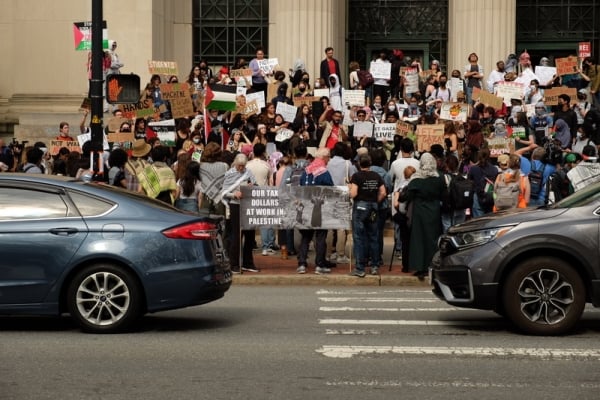It seems that a group of MIT student protesters have found themselves in a precarious situation after being placed on interim suspension by the university. The suspensions, which were handed down in response to the students’ involvement in a recent protest, have left them in a state of limbo, unable to attend classes or access campus facilities.
The students had been participating in a peaceful demonstration calling for greater transparency and accountability from the university administration. However, their actions apparently crossed a line, resulting in disciplinary action by MIT officials.
While the decision to suspend the students may have been necessary in the eyes of the administration, the consequences of their actions are now being keenly felt. With no clear timeline for when their suspensions might be lifted, the students are left in a state of uncertainty and disarray.
Not only are they unable to attend classes or access campus resources, but they are also cut off from the support networks that are crucial for their success as students. The sudden disruption to their academic and personal lives is no doubt causing significant stress and anxiety.
The students, who had hoped to effect positive change through their activism, now find themselves in a difficult position. They must navigate the uncertain terrain of an interim suspension while also grappling with the fallout of their actions.
It is clear that the situation is far from ideal for all parties involved. The students are undoubtedly suffering the consequences of their actions, but they are also being denied the opportunity to address the issues that led to their protest in the first place.
As the students continue to navigate the complexities of their suspensions, it is important for the university administration to consider the larger implications of their decision. While accountability is crucial, so too is allowing students the space to voice their concerns and advocate for change.
Ultimately, the current situation highlights the need for open dialogue and constructive engagement between students and university officials. Interim suspensions may be a necessary tool for enforcing discipline, but they should not be used to stifle dissent or silence voices calling for change.
As the MIT student protesters grapple with the consequences of their actions, it is crucial for all parties involved to work towards a resolution that is fair, just, and conducive to a campus environment that values open discourse and engagement. Only through meaningful dialogue and mutual understanding can a path forward be found for all involved.



